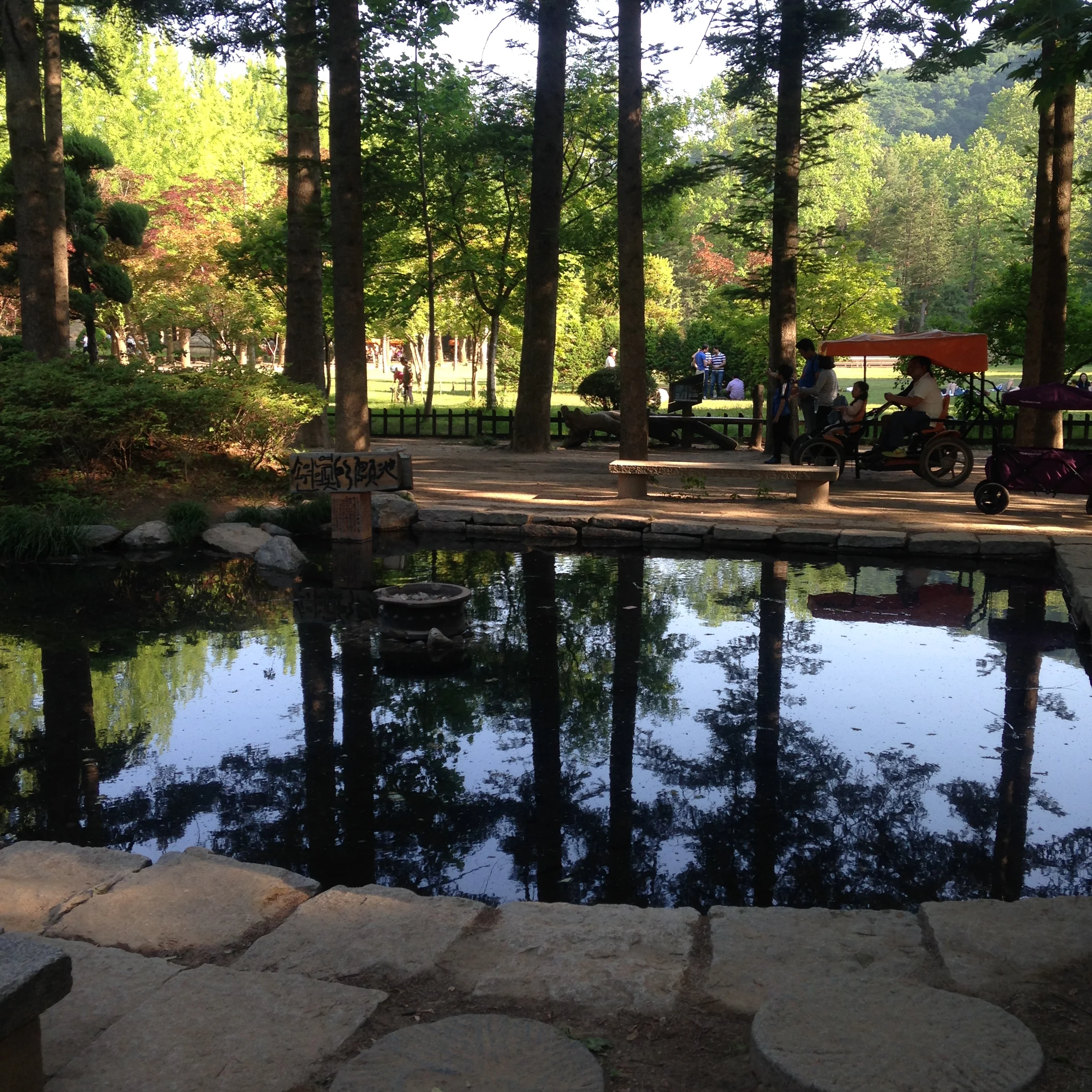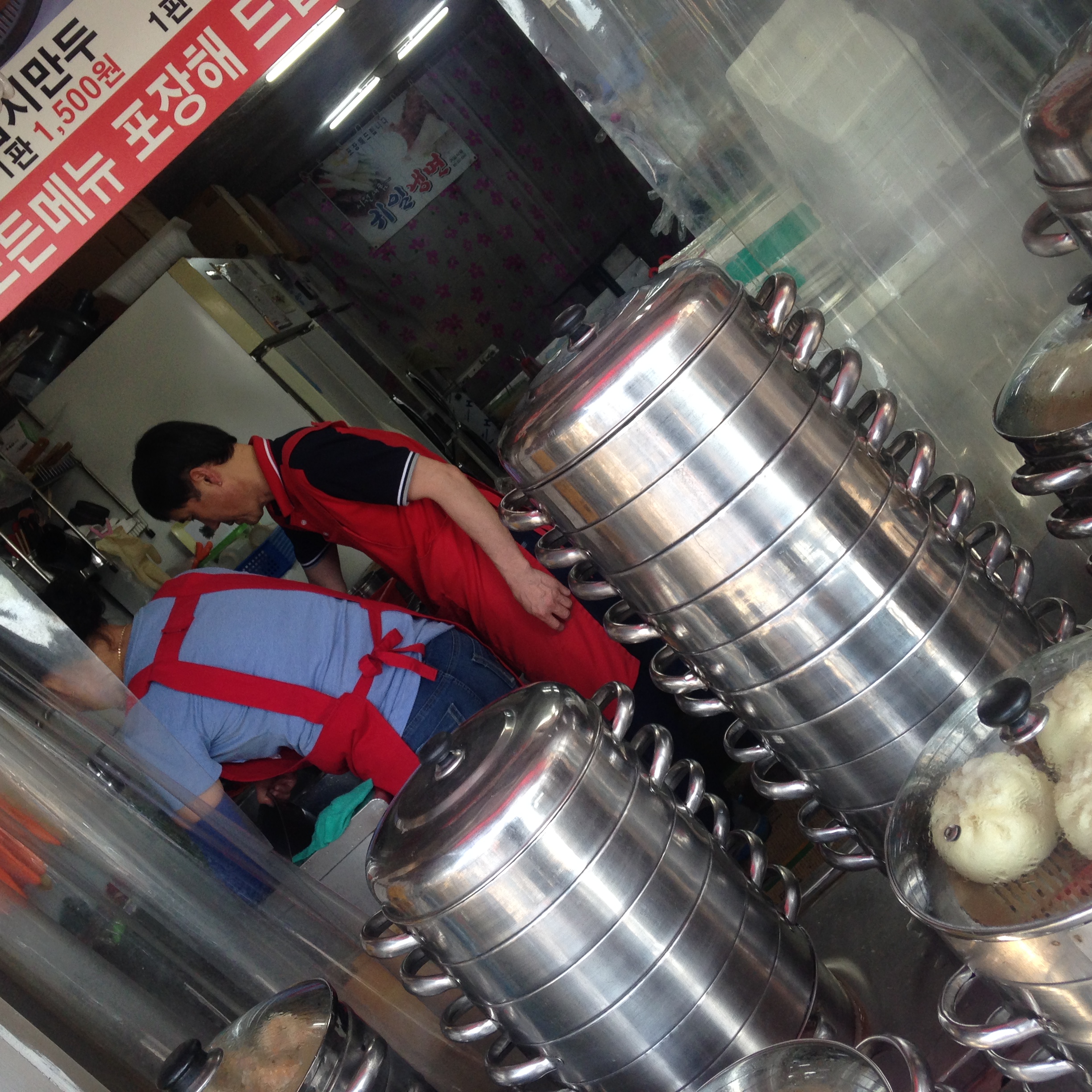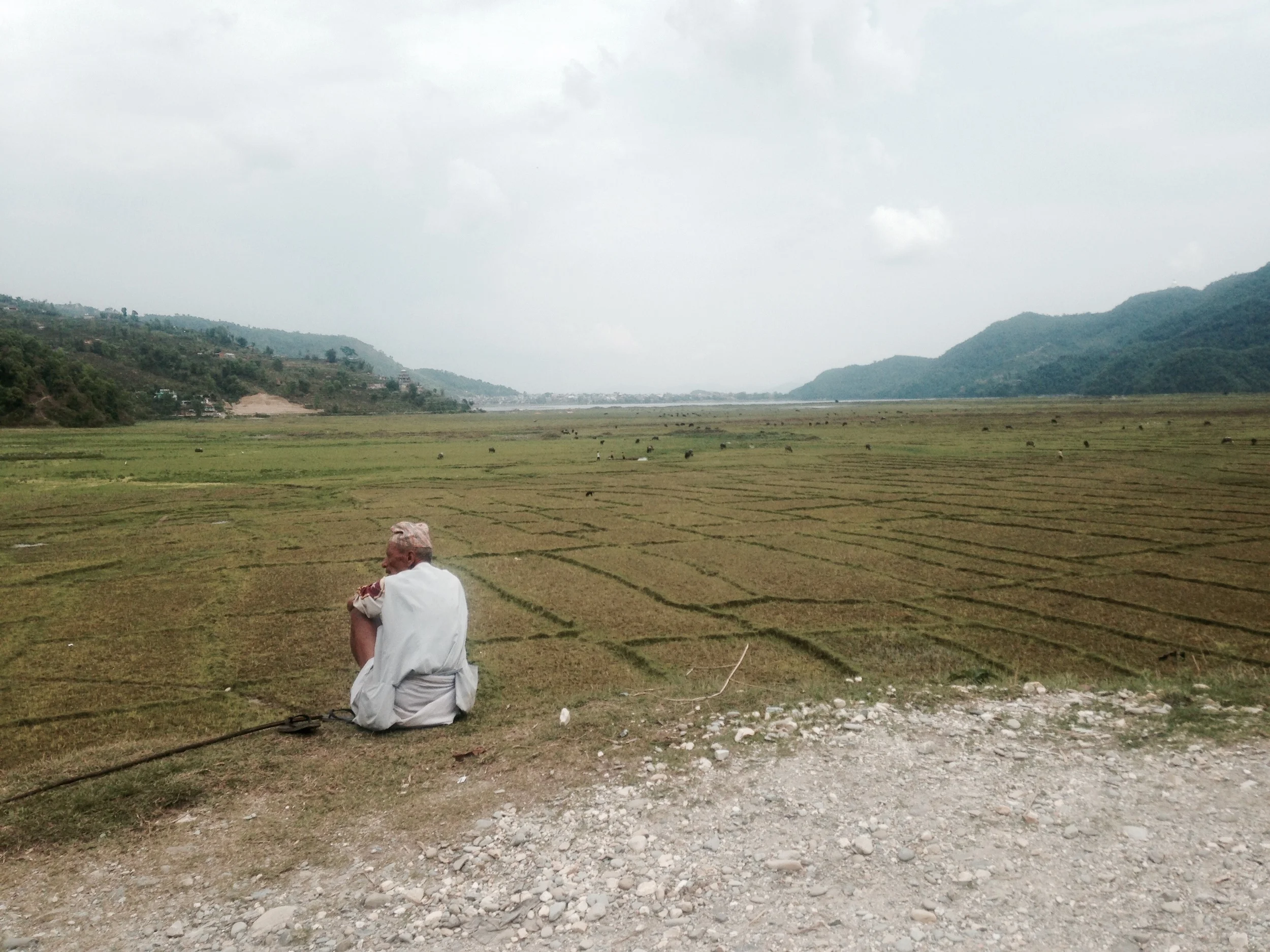While we know numbers don't tell the full story --- the student who gained admission into college, the young woman who built confidence to learn English, the advisee who applied and was accepted for his first job, the job holder who scored high on his language proficiency test, the visitor whose life was changed --- we hope these figures can give you a glimpse into our work at Learning House. We are so proud of our team, students and volunteers for all of the time and energy they put forth on a daily basis. And of course, a very special thank you to our supporters near and far. We couldn't do this without you.
Fun for little ones
A first bus ride, a first trip, pizza, a movie ---- when you imagine life from a child's eye, the world comes alive. We were honored to take these youngsters to the tourist part of town and spoil them with pizza and a movie. Thanks to Ngawang, Sangpo, Sonam, Amrit, Bipin, and the staff of Movie Garden Nepal for helping bring big smiles to these precious faces!
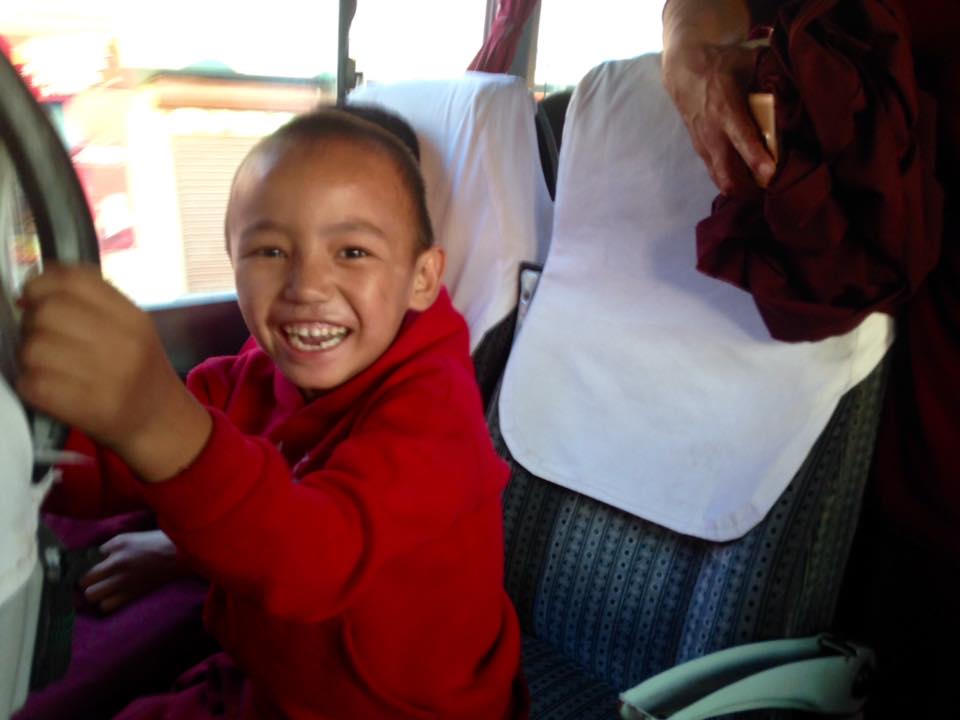
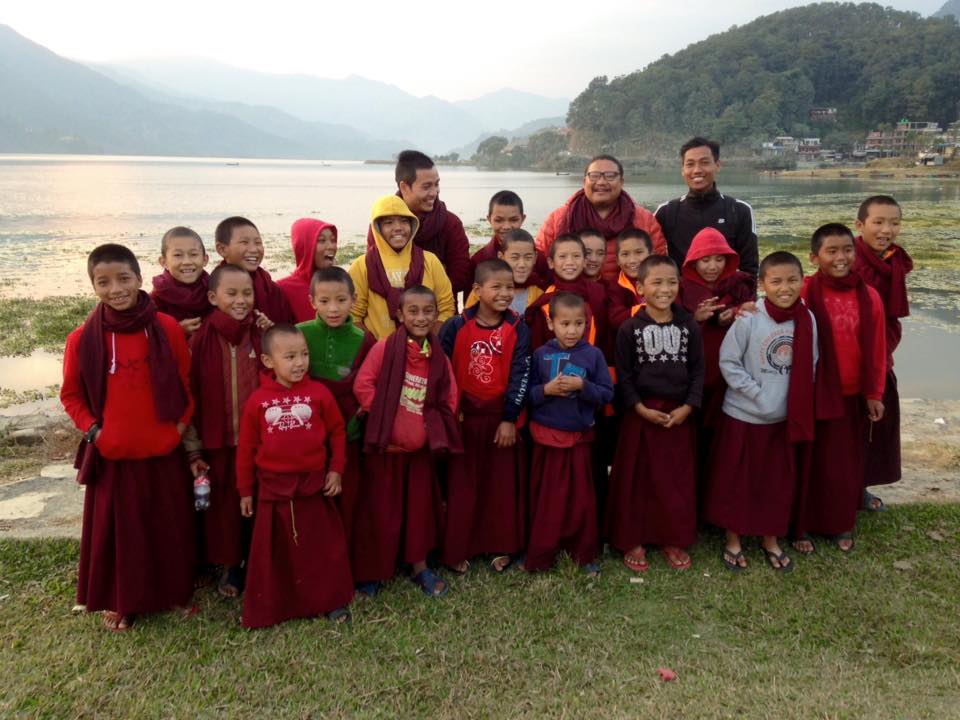
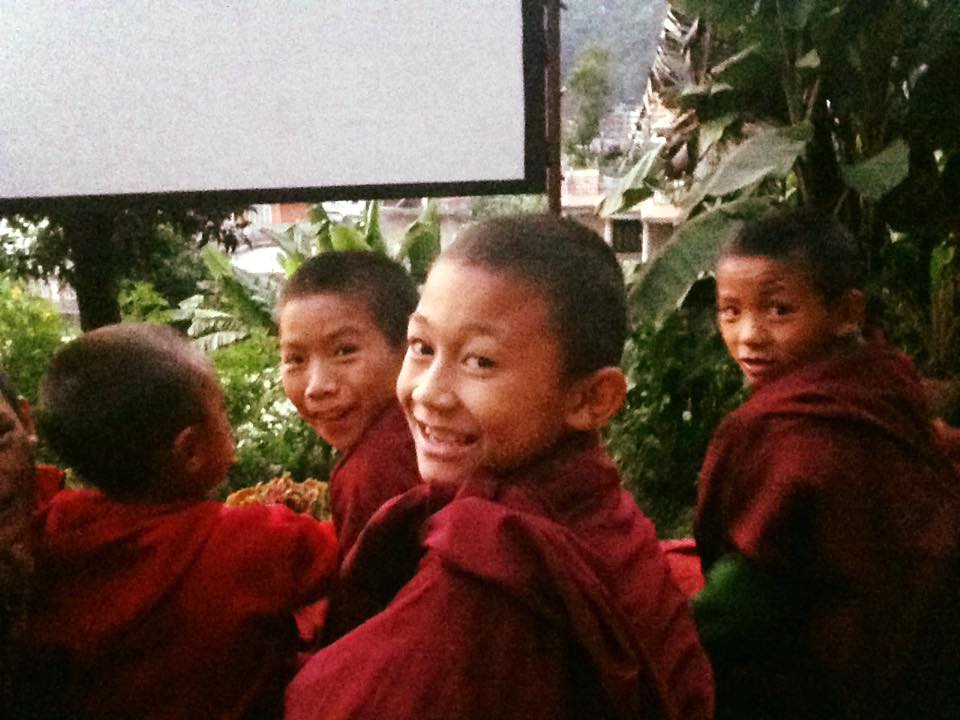
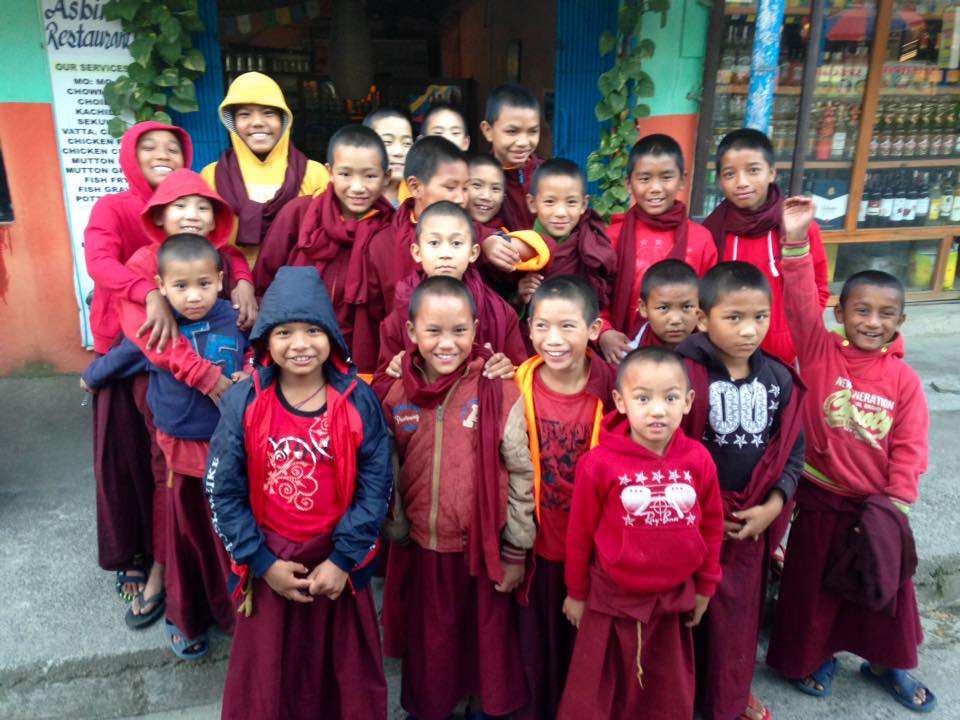

Board Member Laura Visits Nepal
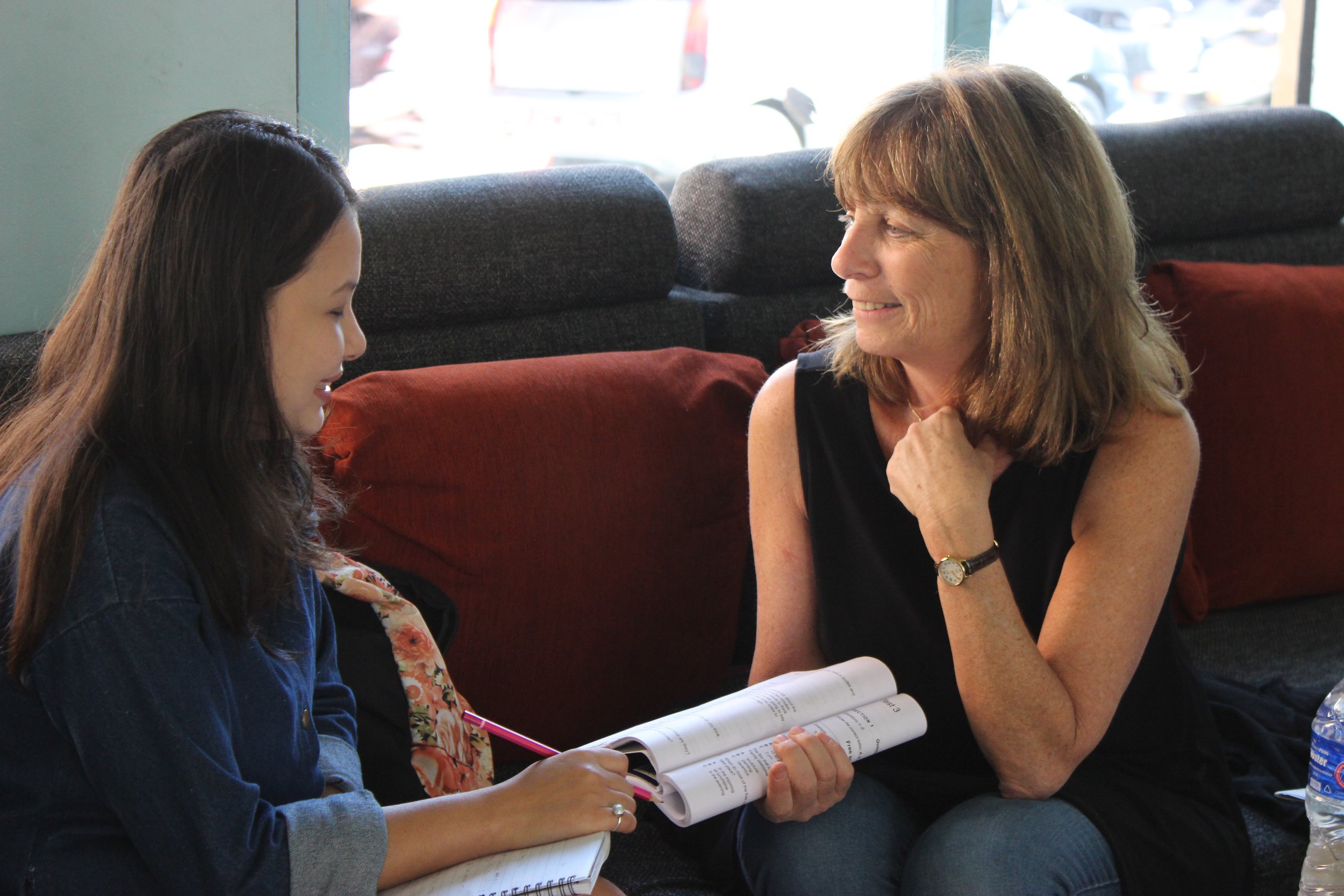
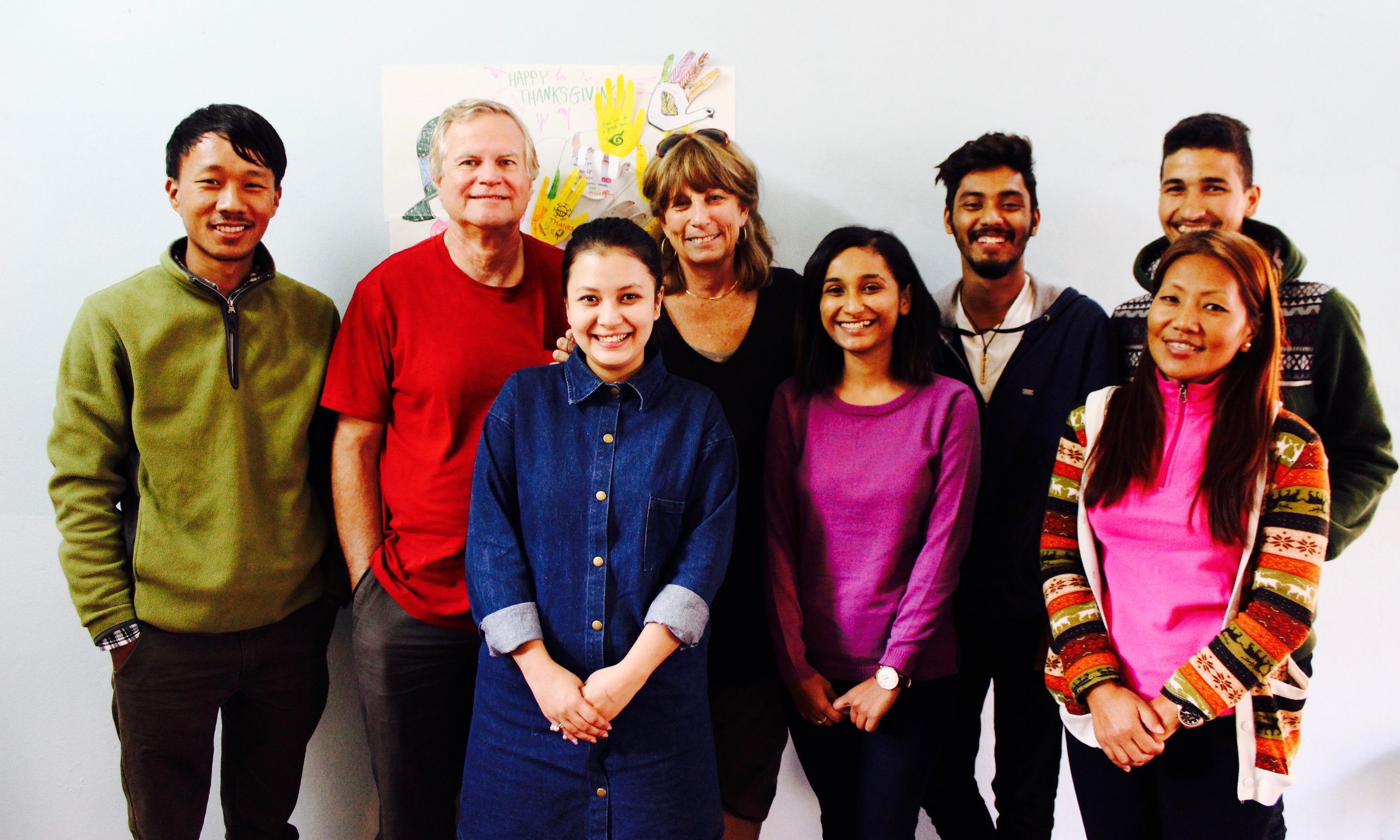
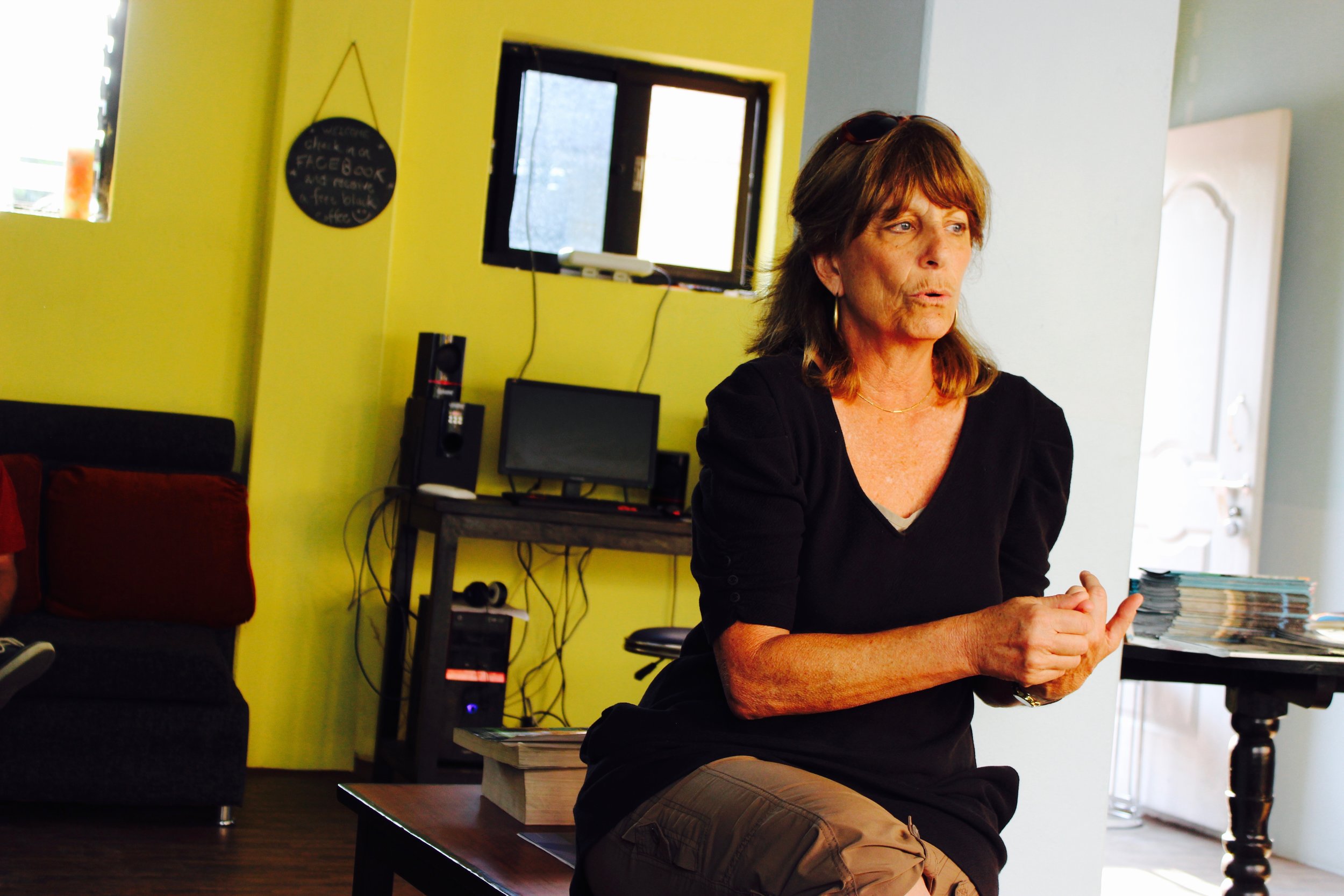
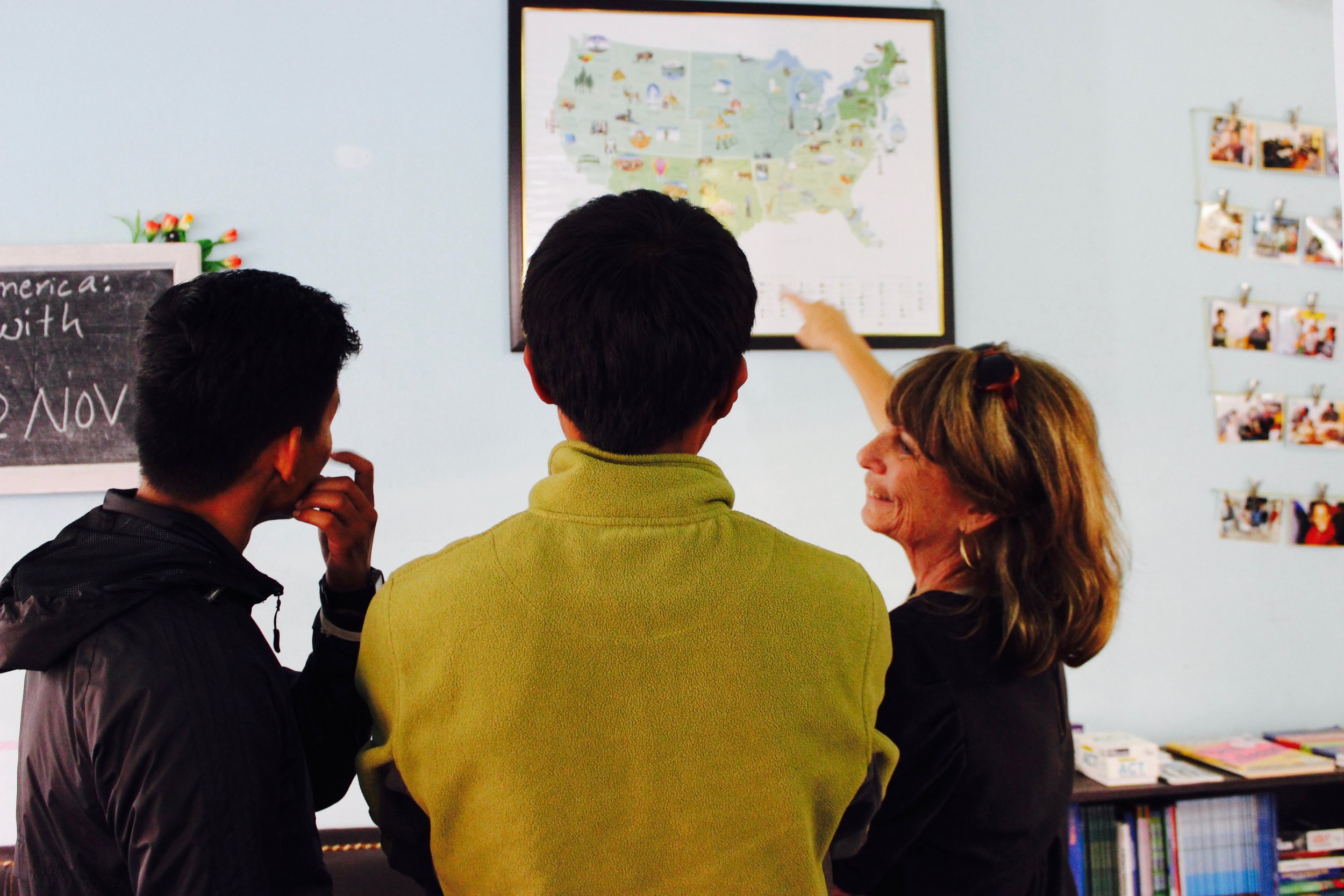

Khata Life Secretary and Board Member Laura Uhls traveled to Nepal to see our work firsthand. Laura visited Matepani and Learning House, two main project areas, and learned more about the community we serve and the students we support. Thank you, Laura, for all you've done to help us succeed!
Bridging cultures through communication and travel
Learning House has been welcoming guests for seminars and conversational English practice. Visitors are given the opportunity to better understand students and learn more about their backgrounds; students gain confidence conversing with native English speakers and are able to ask questions about specific areas of expertise. Email learninghousenepal@gmail.com if you're interested in encouraging students in Pokhara, Nepal.
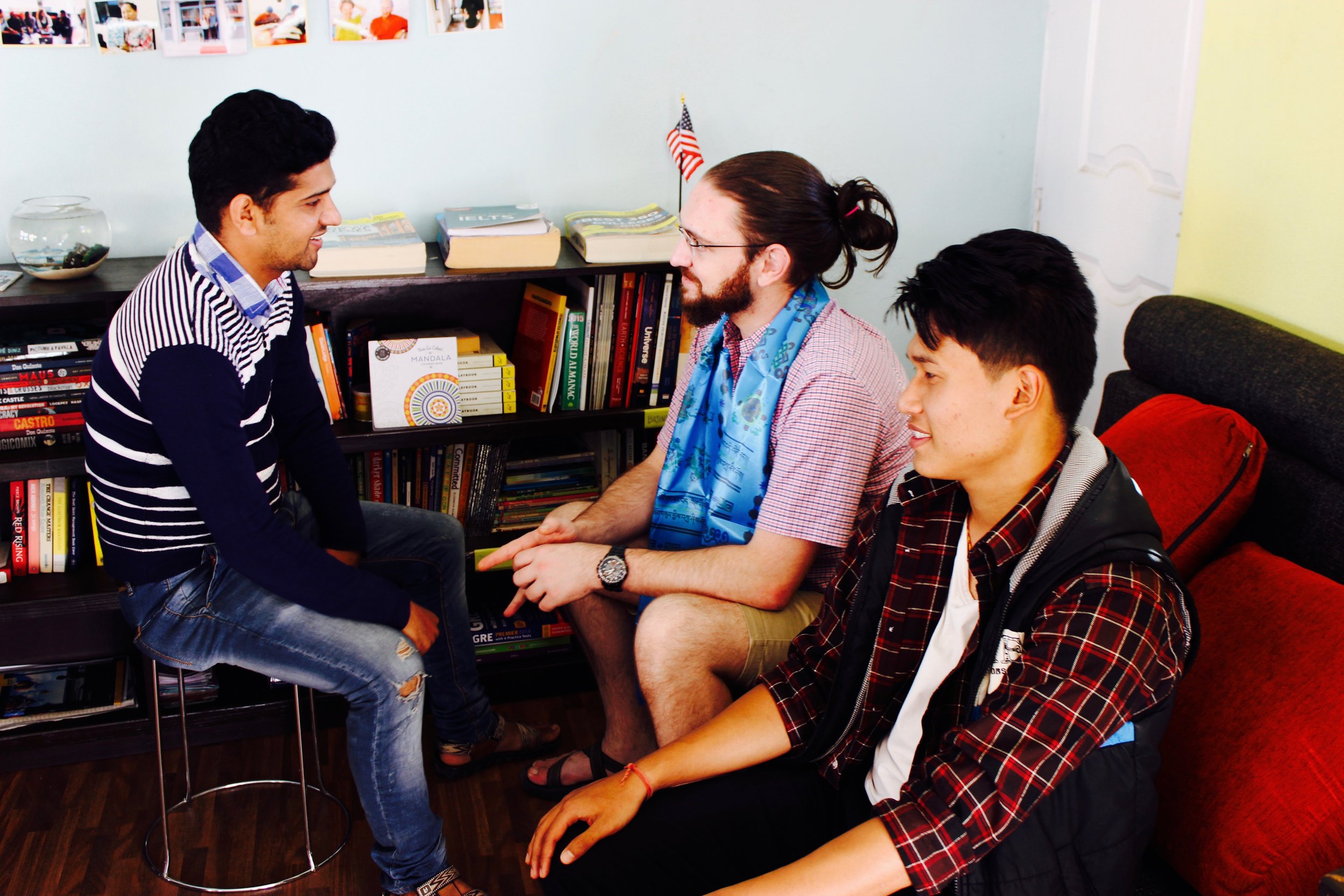
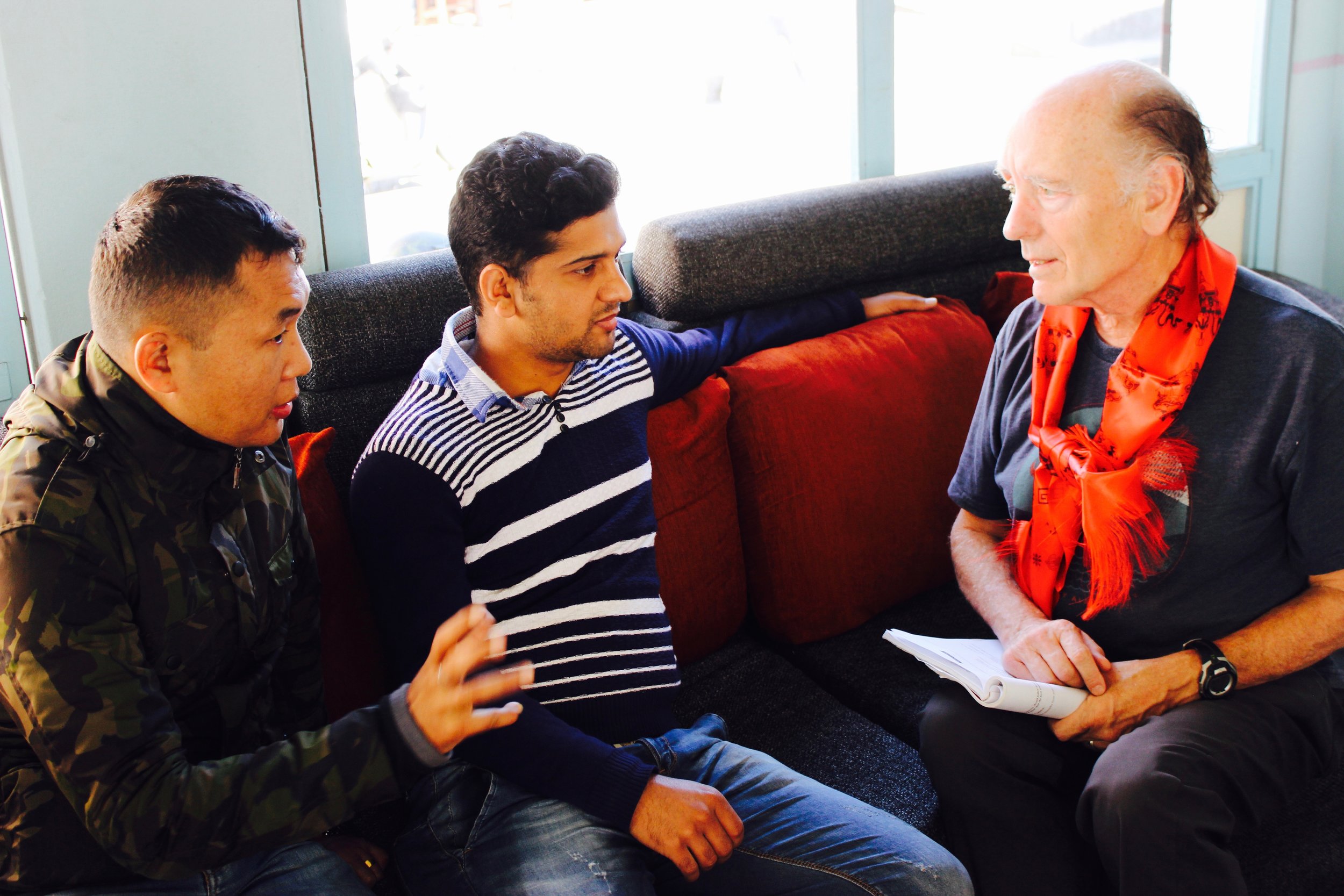


Daily Camera covers Michelle's path to start Learning House
Boulder, Colorado's Daily Camera interviewed Khata Life Founder Michelle Welsch and Learning House Executive Director Ngawang Gurung. Read about how Michelle started an education center in this article and learn ways you can help.
Big news
We're filing paperwork and registering as a formal nonprofit! This is a big step for us and will allow us to receive larger donations from corporations and entities interested in tax credit. Many grant-awarding foundations look for 501c3 registration when considering worthy applications, so this will open up more opportunities for us. More grants and more funds means more ways to help students in Nepal.
We're so excited for what the future holds. Thank you for supporting our work.
Join our Learning House family
WE'RE GROWING!
Thanks to our volunteers, Learning House is thriving. Energetic and warm, these caring individuals are eager to help students do their best and succeed. Not only do our guests help students practice English, they assist our team with events and marketing efforts. We've found that each volunteer has a secret weapon, and we love seeing what they add to Learning House while they are visiting.
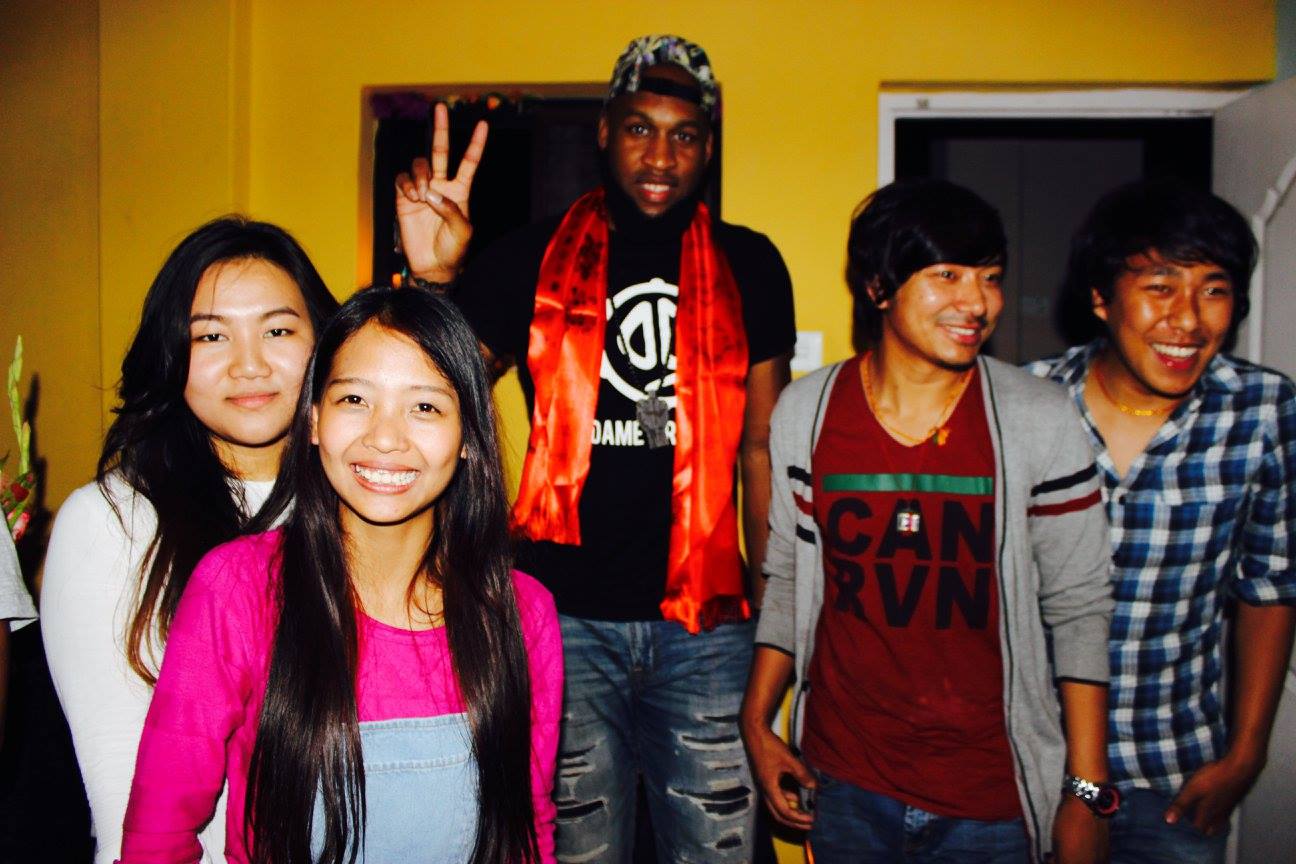
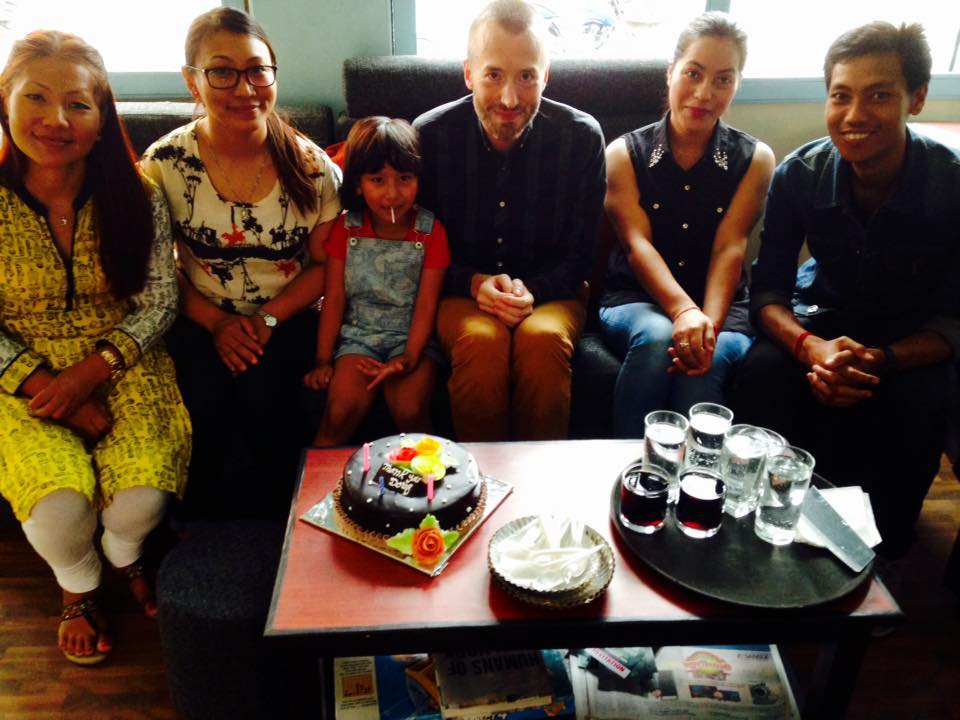
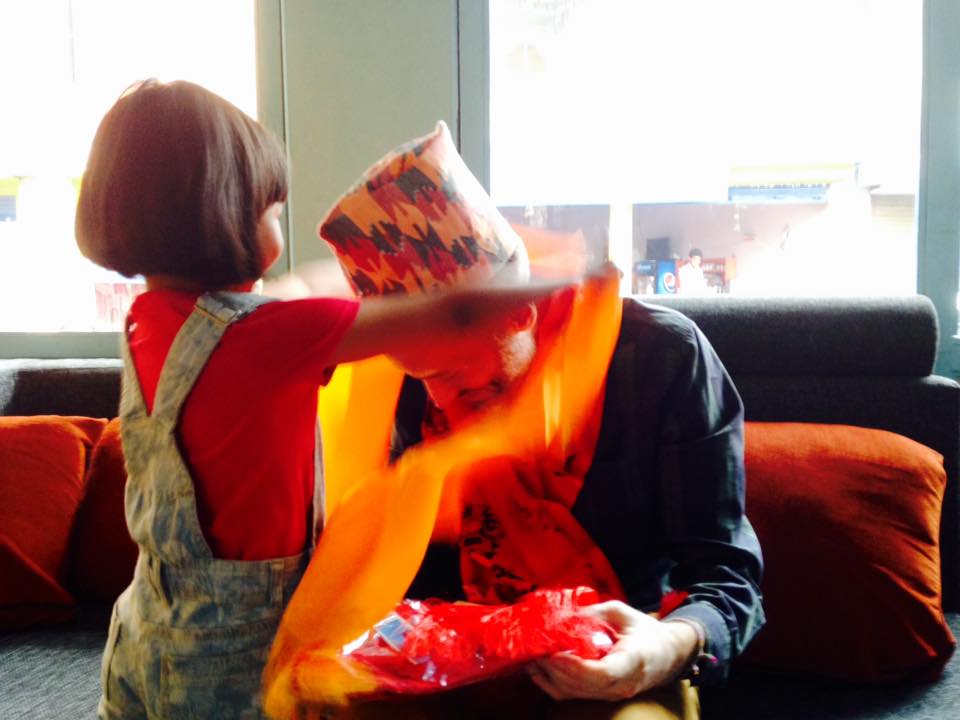

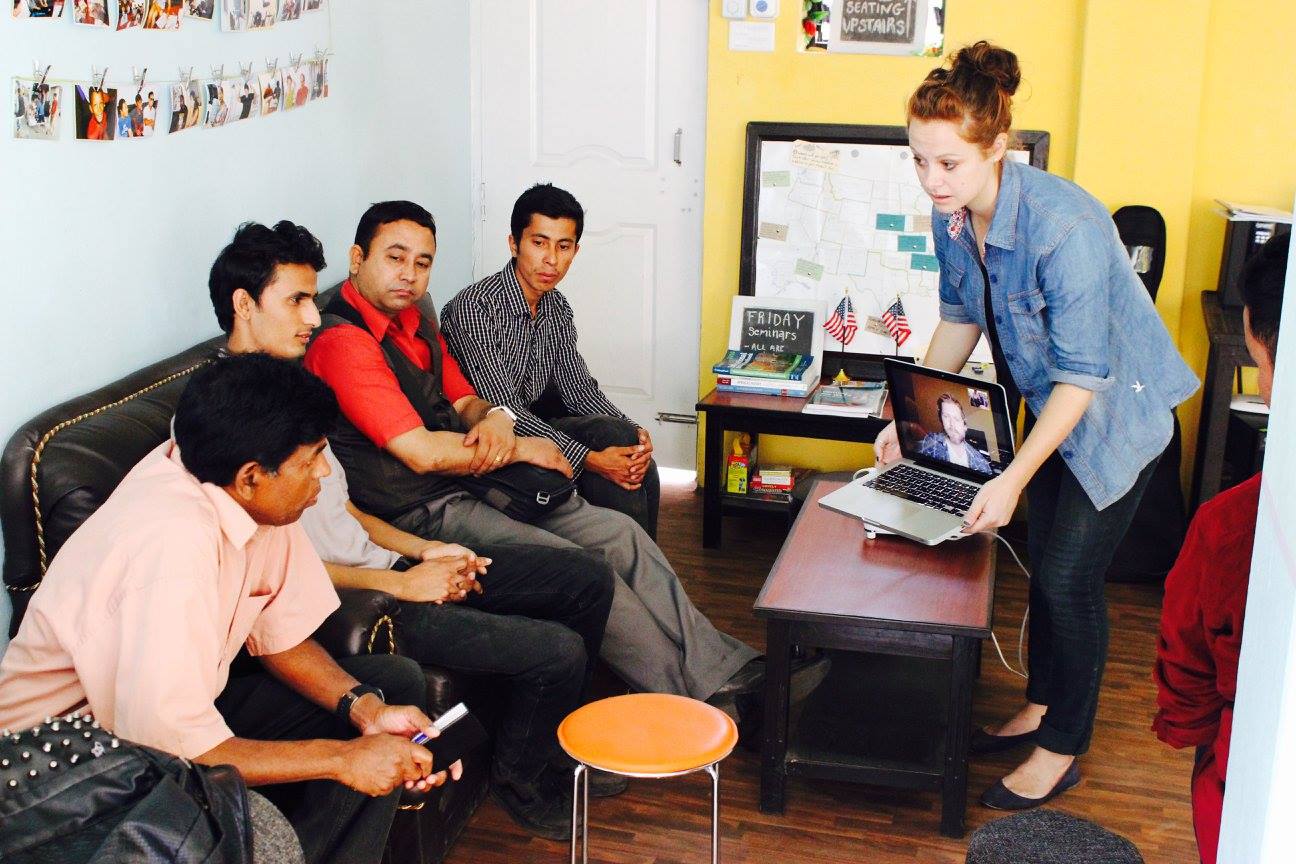
Teacher Ngawang instructs conversational Nepali language and teaches cultural nuances. We want our volunteers to have skills and knowledge that enhance their time in Pokhara. And instead of spending money at a large hotel, we introduce our Nepali Amma (mother) who welcomes you into her home with open arms.
If you'd like to experience a "different" side of Nepal, send us your resume and desired dates of travel. We'll get back to you with more information. Namaste and dhannyabad!
Matepani solar still going strong!
Remember when we fundraised to bring light to Matepani? It still works!
We stopped by on April 2, 2016 for a visit. The monks continue to express deep gratitude for this incredible act of generosity. A hearty thank you to all those who supported this project!
Have you seen what Learning House is up to?
Classes, seminars, advising, local presentations and more --- Learning House has become a lively education hub in Pokhara's city center. Visit the Facebook page to learn more about upcoming events and to see recent photos.
How do you find the right organization to volunteer with in Nepal?
Travel and volunteer.
Explore the world, give back to a community, build relationships with locals and feel awesome doing it.
Except there’s one problem. Scams! Certain volunteer programs charge hefty fees, and your hard-earned dollars don’t necessarily go to people who need it most.
Since not every travel company has your best interests in mind, it’s worthwhile to ask a few questions before signing up for a volunteer vacation.
Are certain skills or training required?
Quality volunteer programs will ask for your resume or CV. Thoughtful organizations will want to use your talents and place you in a position that puts your expertise to use. Be weary of travel organizers who happily take your cash without asking you about YOU – your capabilities, experiences, preferences and expectations.
Is an orientation or language class offered?
Your volunteer-travel operator should give you basic cultural tips and language classes so you can be effective and respectful to the community you’re entering. Learning basics such as “Hello,” “Thank you” and “My name is…” can go a long way when you’re serving in another country.
What is the minimum time commitment?
If volunteer sessions are “open,” meaning you can come and go as you please, you might not have the same experience as with an organization that requires you to be on-site for a specified length of time. Also consider the work you’re wanting to do: Help teachers? Build homes? Paint fences? The two-week schedule your at-home boss has approved might sync perfectly with monsoon season or a community festival. Check local calendars for holidays and political events before booking airfare.
If something goes wrong, who should I contact?
If you’re stricken with an ailment or suddenly have to rush home, you need to know who to call. Is there a team leader or manager who can make necessary arrangements for you to get home? Will you be staying with a host family who can speak English? Do you have access to a 24/7 phone number? Even though you’re traveling to help, you want to make sure your needs are taken care of. Prepare for the worst, expect the best.
Where does my money go?
Although money can be an uncomfortable topic, don’t be afraid to ask! Dishing out cash without a clear understanding of a company’s framework may not contribute to the kind of sustainable development you had in mind when you imagined traveling overseas to volunteer. Reputable organizations won’t get their feathers ruffled if you ask about organization and hierarchy, and most non-profits make their annual numbers public.
Finally, if you don’t know, don’t be afraid to ask. Is important to understand the place you’re going and the work you’ll be doing. Research the company’s history or contact former volunteers to make sure you’re choosing the best option for you.
Bon voyage!
A local's guide to Pokhara
Pokhara is what screensavers are made of: snowcapped peaks, glistening lakes, prayer flags kissing blue skies.
Morning view of Maccapuchhre (Fishtail) Mountain from Matepani Gumba
Morning puja, Matepani Gumba
Fewa Tal, Lakeside
Popular tourist attractions include Devi’s Falls and the “White Gumba,” a glistening pagoda perched on a hill overlooking Fewa Lake.
Pokhara's airport makes it easy for travelers to skip long bus rides and arrive from Kathmandu in less than thirty minutes.
Don't worry, your sweet tooth won't be ignored in Pokhara. Several bakeries serve cakes and freshly baked goods. Try The Cake Shop or Crossroads Cafe on New Road.
If you get sick of dal bhat, local pizzerias fire dough in wood-fueled ovens. I recommend the old Godfather's Pizzeria (there are two).
Rainy day? Hunker down in one of the many cafes with a coffee or plate of Mo:Mo. Shown here: Cafe Aroma in Mahendrapool.
Feeling adventurous? Rent a motorbike and explore surrounding rice fields.
Another fun activity: rent a bicycle and pedal to Pame.
On the beaten track: International Mountain Museum. Off the beaten track: Bull riding.
Morning in Pokhara.
Early risers climb the hill leading to Matepani Gumba where monks begin their first chants of the day. Across the valley in Lakeside, vacationers sleep off last night’s revelry, and trekkers slowly rouse before starting off on various treks throughout the Annapurna region. Others, with cameras strapped around their necks, file into taxis hoping to catch the famous golden rays of Sarankot's sunrise.
I’m sprinting up New Road.
Shopkeepers begin to roll open shutters, and the smell of freshly baked goods lures me and sweat-drenched Zumba enthusiasts away from morning exercise. I’ve made a game of overtaking groups of camouflaged-clad army trainees. They’re one-two-one-twoing in single file lines, and I’m flying past them. It’s Eye of the Tiger, except the tiger is carved out of snow on Machhapuchhre (Fishtail Mountain). And, let’s face it, these Laures-in-training are closer to Rocky than I’ll ever be.
Pokhara has it all.
The city earned its name from the many lakes dotting the area. Besides Begnas and Fewa, the Seti River cuts through town, a ribbon tying a gift made specifically for paragliders.
It’s no wonder so many families retire in Pokhara after working overseas. The hub city of Kaski and third largest urban area in Nepal, families migrate from hill communities to capitalize on the area’s economic opportunity.
The richest district in Nepal, Kaski is home to clusters of large homes and teenagers speeding down relatively clean streets on bikes. Locals often ask tourists which city they prefer – Kathmandu or Pokhara – and the answers are unanimous.
Like Kathmandu, Pokhara offers promise of opportunity in commerce, business and tourism.
But price of rent and market items can be a deterrent for many. Mirroring most areas in Nepal, the gap between rich and poor is evident. A few beggars have made Mahandrapool Bridge their home, blocks away from privately built mansion houses.
My friend Bimla runs a souvenir shop on the main road in Lakeside (across from Boomerang, if you want to find her). She remembers early days of selling knickknacks to visitors. What was once a dappling of merchants has exploded into a line of restaurants, travel agencies, and shopkeepers bargaining with tourists hoping for a sale.
Ease of travel has helped create a jigsaw of hippies, vacationing Nepalis and hardworking locals.
Tourist buses run daily, some offering wifi and air conditioning for the more discerning travelers. Daring adventurers can hop into local microbuses to shave time and money off the overall journey from Kathmandu. And if you don’t want to spend hours inside a bus, the priciest option, air, can land you at Pokhara Airport in less than thirty minutes.
Because of this accessibility, Pokhara has become a holiday hot spot. Events such as Tihar, New Year, even Valentine’s Day are packed with Nepali and foreign visitors. Around these festivities, hotel prices rocket and streets fill with locals showing off fashion trends while wide-eyed tourists stumble beside them in trekking boots.
Mela, outdoor concerts, and events abound.
Every night of the week, live music drips as freely as alcohol from bars lining Fewa Tal. Many restaurants feature traditional dance shows, and if you have a favorite Kathmandu restaurant, chances are its twin is waiting for you in Pokhara (Trisara, Phat Kath, Himalayan Java). Busy Bee is a local staple; Nepalis and bideshi drink and smoke hookah while listening to cover songs from live rock bands. New friends stagger arm in arm to late night haunt Ozone and shimmy the night away. If you “overdo it,” don’t worry --- massage rooms and spas can rub away your tired feet (and hangover) the next day.
Those wanting a surge of adrenaline can find it.
Bungee jump, paraglide, skydive or stand-up paddleboard for added adventure. Families wobble in boats and paddle into the lake’s center to visit the Hindu Temple Tal Barahi. Buddhist monasteries house Nepali and Tibetan practitioners. Listen carefully and you’ll hear Gurung spoken or stumble upon a group of men in traditional dress heading for an archery tournament.
Visit Pokhara, but don’t spend all your time in Lakeside.
Even if it’s only for a morning jog through the city, make your way to Chippledunga.
I’ll see you on New Road.
Thoughts become things
Over one year ago, I realized I passed the same group of boys sitting on the stoop of an electronics shop. Every day. Sometimes they’d be smoking, most of the time they’d be watching life pass by. Do they go to school? What are they doing? I hate seeing unused talent.
I had been living and working in the Kaski community for some time and decided to talk to respected leaders. They all agreed: young adults didn’t really have a place to "hang out." Pool halls and restaurants were pricey, and the educational facilities that existed weren't places a hip teen might want to spend time. I visited these places, I taught in a few educational consultancies; even I found the dank classrooms uninspiring.
Photo taken in Pokhara before Indiegogo campaign went live (December 2014).
Thus, the Learning House concept was born. We searched to find an ideal location, signed a 5-year agreement, and set about creating an environment that was welcoming and lively. Over 122 generous friends near and far backed us, Pollination Project awarded our very first grant, and we were off! Nights spent scrubbing floors, days running around purchasing chairs and tables, overseeing local construction of sofas and bookcases; in these days I learned the true meaning of "hustle." It was an intense push, but by February 2015, we were hosting classes and events, introducing mothers to their first English words and helping students prepare for ESL tests. Then the earthquake hit, and we did what we could to help those who were hurting.
We held our Grand Opening event in May, and with friends and family, guests from abroad and local community members, we heartily and officially welcomed what was once an idea. I will always remember cutting the symbolic red ribbon and reflecting upon the hard work and, yes, blood-sweat-tears that made this idea come true.
But I knew it was only the beginning.
Less than one year later, Learning House boasts classes and free seminars, a community lounge with books and study resources, snacks, coffee and highly popular Live Music/Open Mic nights. Our staff has advised over 87 students on education and career options, and over 321 participants have benefitted from our weekly events. These workshops have introduced various leaders --- business owners, academics, entrepreneurs, hoteliers --- to students, sharing skills necessary for entrepreneurship and management: communication, problem solving, character building, goal-setting, public speaking and business fundamentals.
A recent photo reminded me of the moment Learning House came to be.
Outside Learning House's Live Music Night (August 2015).
Thoughts really DO become things.
Pay attention to the places your mind wanders; it could lead you someplace surprisingly delightful.
Rewarding hardwork
I've had the pleasure of working alongside Ngawang for over two years, first as teachers at Matepani Gumba and now as partners at Learning House. He is unselfish and kind, clocking hours 24/7 to make sure students are taken care of.
Ngawang has been working on a volunteer basis since the Learning House project began. To honor his dedication and commitment, Ngawang was rewarded with his first ever vacation. You read that right. Ngawang had never been on a plane, and I took him to Seoul, Korea to see what he's only seen in movies --- skyscrapers.
You're great, Ngawang!
Free community events
The programming component at Learning House has really taken off. Our free community events have introduced a variety of guests to local professionals and students. One program was recorded online so a broader community could participate. Useful insights on the travel and tourism industry were communicated to business-owners looking build back after Nepal's earthquakes. Our guest lecturer (live from Iceland!) provided great tips to encourage travelers to visit Nepal. We were also fortunate to have an American family discuss the education system in the United States and give tips to students thinking about going abroad to study. Live Music/Open Mic night was another big hit. The Learning House family certainly is a talented one.. Keep an eye on our Facebook page for more pictures from our seminars and workshops!
Team Building
Learning House staff works HARD. Really really hard. For little pay but with fierce dedication. Most of our team members are volunteers, and those who do receive salary are worth far more than what they earn. We went ziplining last weekend as a reward. The team is still talking about it.
Learning House + YOU
Starting a business is hard. In Nepal. After national disasters.
But we're committed to creating educational opportunities that encourage local leaders within the Kaski community.
With a limited budget, we established the foundation for the Learning House. Now our sights are set on growth and development to build a fully sustainable operation. (Business folk know this can take time.)
Our goal is to raise enough funds to "float" until cafe revenues can fully subsidize our educational programs.
TO HELP US, CLICK THIS LINK.
Not only are we invested in our students, we're committed to our staff and local community. We take pride in working with and supporting local business owners, partnering with nearby flower shops, bakeries and furniture makers to make our space beautiful. We believe this is why our center has become a hub for leaders to discuss pressing issues, find employment opportunities and work through educational challenges.
Many of our students are job holders themselves, joining English classes to improve their speaking skills in order to pursue higher paying positions.
We hope to continue to make a positive contribution for years to come.
Thank you for your continued support!
Volunteers Wanted
Learning House is now accepting applicants for July-August 2015.
We look for adaptable, entrepreneurial go-getters who like to have fun and do good. Our guests teach English, improve our rooftop garden, make killer playlists and help our young staff think outside of the box. We welcome fresh ideas and energy!
Our team is young and spunky and driven, and our students are equally determined. Many are job holders looking to improve their English in order to get better jobs or go abroad for continued study.
We will help you with logistics and housing. Instead of spending cash at a fancy hotel or large volunteer organization, you'll be directly supporting local businesses and families. Our Nepali Amma will make sure you feel welcome and at home, cooking you fresh meals daily. And you'll meet many of our friends from around town.
We also have put together a cultural package for our volunteers; you'll be studying basic Nepali skills and can take traditional dance classes down the street!
If you'd like to visit Nepal in a meaningful way, send us your resume and desired dates of travel for consideration. Dhannyabad!
After the earthquake, We are Nepal
Yesterday evening NPR called my cell phone. This was incredible considering that for most of the day, phone lines were tied as people attempted to check in on relatives and friends. My legs were still shaking from the morning's trembles. Hours before, the earth played a cruel joke, pulling me onto an amusement park ride I had no intention of riding and couldn't seem to get off.
Among the questions that followed, "What is it like living there? Is there infrastructure?" made me pause.
We don't have roads. Lives are lost each year to landslides and bus accidents.
We don't have electricity. Every day we suffer through blackouts and must time the charging of our electronic devices to loadshedding schedules.
The government is weak. Our country's constitution has yet to be rewritten following a destructive war that swept the country not so long ago. "Handouts" have become a seemingly accepted part of society, and government officials and high posts seek bribes to do their work.
Most recently, swine flu has run rampant in Jajarkot, and our international airport left thousands of travelers stranded after a damaged plane sat idle on a runaway.
And now this. Over 1,000 people dead, and the number continues to rise. Temples and homes shattered. Lives changed.
So many people are wondering how we will recover, how to help. (Here's a list of vetted on-the-ground organizations.)
"Jai mahakali, ayo Gorkhali!" is the war cry of Gurkha soldiers. Their bravery, strength and resilience has been recognized worldwide. They are known as people who cannot be defeated.
The people of Nepal are tough.
Villages have rebuilt. People in cities look after each other like family. Community efforts take the place of government initiative.
When we rebuild, we build better, stronger.
We may need help, smart help from the international community, help that goes directly to people who need it instead of into the pockets of corrupt bureaucrats, but we will continue. We will rise.
We are Nepal.
English classes, free seminars and more
Classes are filling. We're emphasizing practical exercises and questions that encourage critical thinking. The best part is watching students arrive early and stay late chatting with new friends. Even our Nepali Ammas are excited.
We've hosted an education consultant, local photographer and paragliding pilot during our free career seminars. We've even taught Nepali language to a visiting tourist.
We can't wait to open the cafe! Now only weeks away from our Grand Opening, we're putting finishing touches on the house and making final tweaks. See what else we're up to here.



























